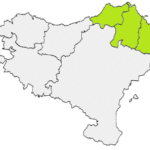Critics warn of potential abuse of the bankruptcy system
- Supreme Court to hear case involving Purdue Pharma’s bankruptcy settlement
- Settlement provides compensation for opioid crisis victims but shields Sackler family from civil claims
- Question of whether bankruptcy law allows liability shield for non-bankrupt individuals
- Critics argue that approval of settlement could lead to abuse of bankruptcy system
- If agreement is blocked, it would cause further delays in compensation for victims
- Plan includes billions of dollars for victim compensation and opioid-abatement programs
- Majority of creditors support the plan, but only a small percentage of eligible claimants voted
- Approval of settlement could set a precedent for other companies facing mass tort liability
- Striking down the deal would require pursuing a new solution with additional costs and uncertainty
- Supreme Court decision could impact the future of bankruptcy and liability releases
The U.S. Supreme Court is set to hear a case involving the bankruptcy settlement of Purdue Pharma, the maker of OxyContin, which has significant implications for victims of the opioid epidemic and corporate bankruptcies. The settlement aims to compensate victims but also provides broad protections for the Sackler family, who controlled the company. The main issue at hand is whether bankruptcy law allows for liability shields for non-bankrupt individuals, a question that has divided lower courts. Critics argue that approving the settlement could lead to widespread abuse of the bankruptcy system, while proponents highlight the billions of dollars it would provide for victim compensation and opioid-abatement programs. If the agreement is blocked, it would cause further delays and uncertainty for victims. The Supreme Court’s decision could set a precedent for other companies facing mass tort liability and impact the future of bankruptcy and liability releases.
Factuality Level: 7
Factuality Justification: The article provides information about a case involving Purdue Pharma and the legality of a bankruptcy settlement. It presents arguments from both sides and includes statements from various sources. However, it does not provide extensive background information or analysis of the legal issues involved.
Noise Level: 7
Noise Justification: The article provides a brief overview of the case involving Purdue Pharma and the Sackler family, but it lacks in-depth analysis and fails to explore the broader implications of the Supreme Court’s decision. It also does not provide sufficient evidence or data to support its claims. Additionally, the article includes some repetitive information and does not offer actionable insights or solutions.
Financial Relevance: Yes
Financial Markets Impacted: The outcome of the Supreme Court case could have implications for corporate bankruptcies and the liability of companies in the opioid crisis.
Presence Of Extreme Event: No
Nature Of Extreme Event: No
Impact Rating Of The Extreme Event: No
Rating Justification: The article discusses a Supreme Court case involving the bankruptcy settlement of Purdue Pharma, the maker of OxyContin, and its implications for victims of the opioid epidemic and corporate bankruptcies. While there is no mention of an extreme event, the outcome of the case could have significant financial implications for the company and the victims of the opioid crisis.
Public Companies: Purdue Pharma (null)
Key People: Sackler family (), Elizabeth Prelogar (U.S. Solicitor General), William Organek (Assistant Law Professor at Baruch College’s Zicklin School of Business and Managing Editor of the Harvard Law School Bankruptcy Roundtable), Sarah Foss (Global Head of Legal and Restructuring at Debtwire), Adam Levitin (Law and Finance Professor at Georgetown University Law Center)
 www.marketwatch.com
www.marketwatch.com 




